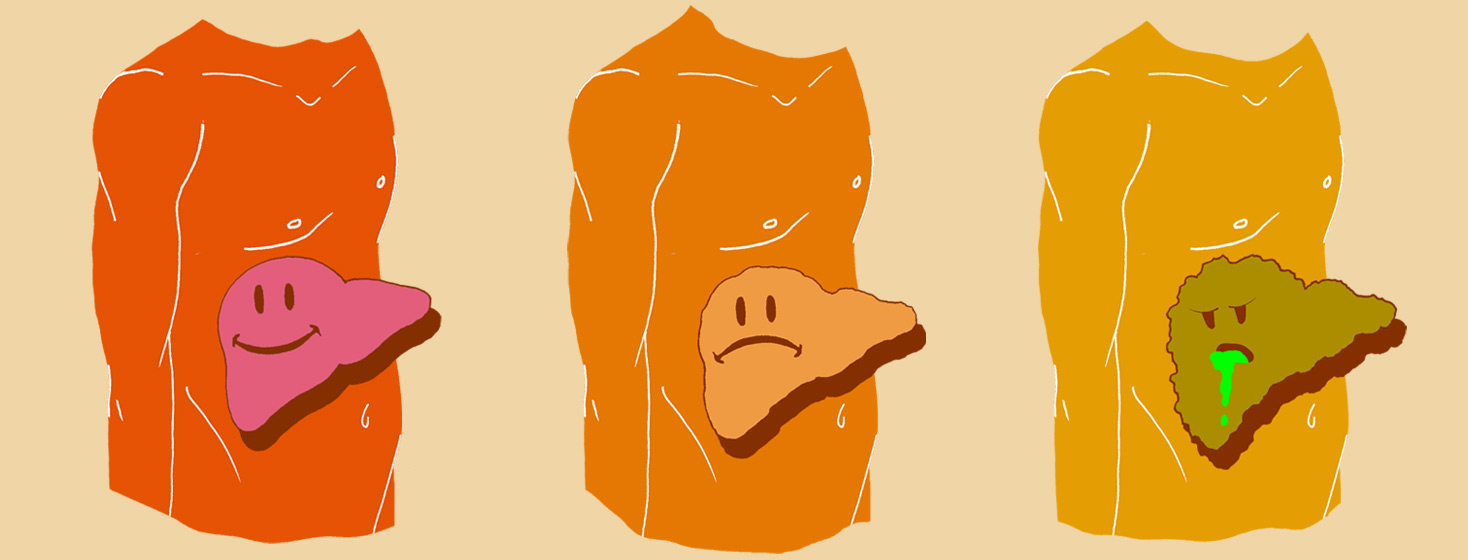Questions about Liver Damage with Hepatitis C
A common concern for all hepatitis C patients is liver damage. Understanding the difference between fibrosis and cirrhosis helps you to understand what is happening to your liver and how to take better care of yourself.
How do I know if I have liver damage?
Physical exams and patient symptoms can be an indication of liver damage, but liver damage can often be present without symptoms. Your doctor will need to run tests to determine if you have liver damage. Tests can include, blood tests, Fibroscan, MRI, and ultrasound are generally done to evaluate the structural condition of the liver.
What is the difference between fibrosis and cirrhosis?
In the early stage of hep C, the virus can cause minimal to mild liver damage. However, over time, scarring (stiffening or hardening of the tissues) forms in the liver. When the liver is damaged, fibrous layers are formed which become scar tissue. This early phase of liver damage is called fibrosis.
If scarring continues over a prolonged period of time, fibrosis damage continues to get worst until the scarring is severe and permanent, which is cirrhosis. This damage continues to form bands throughout the liver, destroying the liver’s internal structure and its ability to regenerate, and impairs liver function.
Does liver damage mean I have to have a liver transplant?
No, not necessarily. Liver transplants are only done when certain requirements are met. Liver damage can become so severe that liver function is severely impaired. With cirrhosis, there is a higher risk for liver cancer and complications from ascites (swelling), varcies (internal bleeding), hepatic encephalopathy (high ammonia levels that cause brain fog/confusion), and other complications.
Cirrhosis can be classified as either compensated or decompensated and given a grade according to the severity of damage. Depending on the severity of liver damage with cirrhosis, your physician may recommend you for a liver transplant and proceed with giving you a MELD score, which puts you on the transplant list.
How do I take care of myself if I have liver damage?
Taking care of yourself is important in taking care of your liver. Everything you are exposed to and take in is processed by your liver. Don’t drink alcohol or smoke. No recreational drugs. Tell your physician what over-the-counter and prescription medications and if you take any vitamins and supplements. Some herbal supplements can harm the liver.
Eat a balanced diet free of processed foods. If you have cirrhosis, a diet specifically recommended for your liver condition is best. Example, if you have cirrhosis, a salt-free diet is recommended along with the balanced protein you will need. Your physician can help recommend what is best for your liver condition. If you are overweight, losing weight will help. Diet, along with taking care of yourself, will help, but it will not cure hepatitis C. If you have hepatitis C, seek treatment in order to be cured.
Will hepatitis C treatment cure liver damage?
The goal of hepatitis C treatment is to eliminate the hepatitis C virus infection and stop further liver damage from occurring (being cured). Hepatitis C treatment will not cure liver damage. Depending on the level of liver damage with fibrosis the liver can regenerate new liver tissue, but the liver cannot repair from severe scarring (cirrhosis).
Being under the care of a liver specialist (such as a hepatologist or gastroenterologist), taking care of yourself, and treatment for hepatitis C is the best thing you can do for your liver.
Get tested, seek treatment, and get cured. You're worth it!

Join the conversation